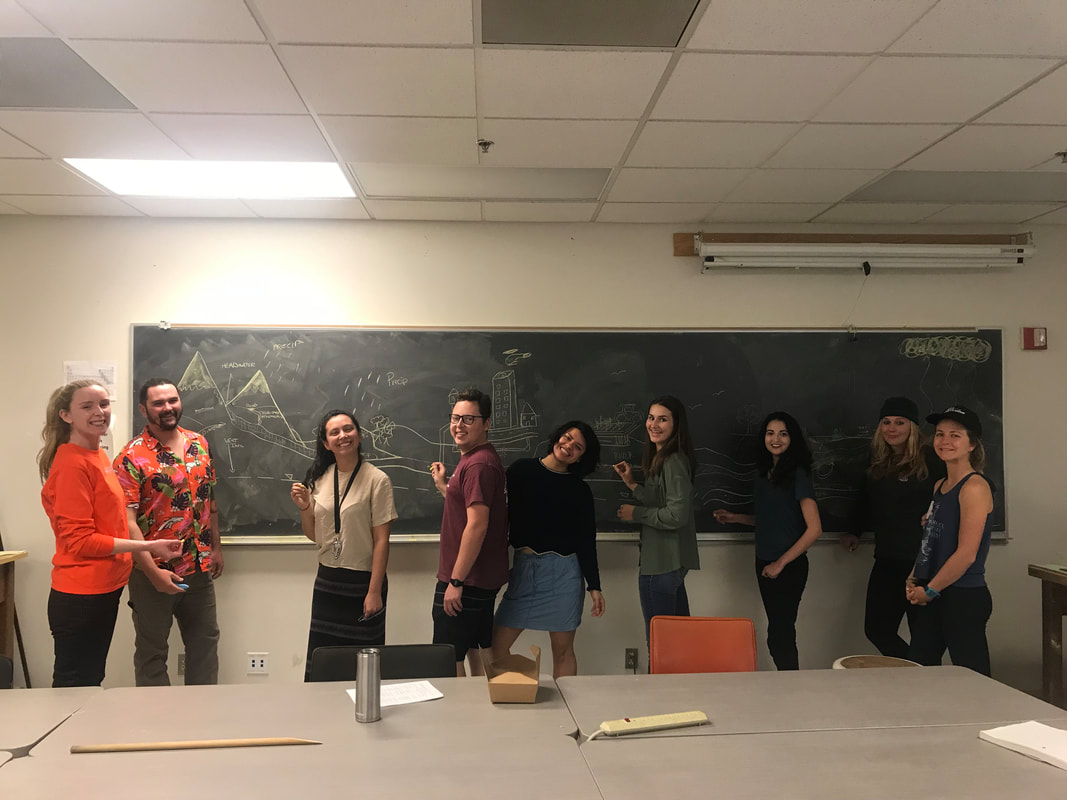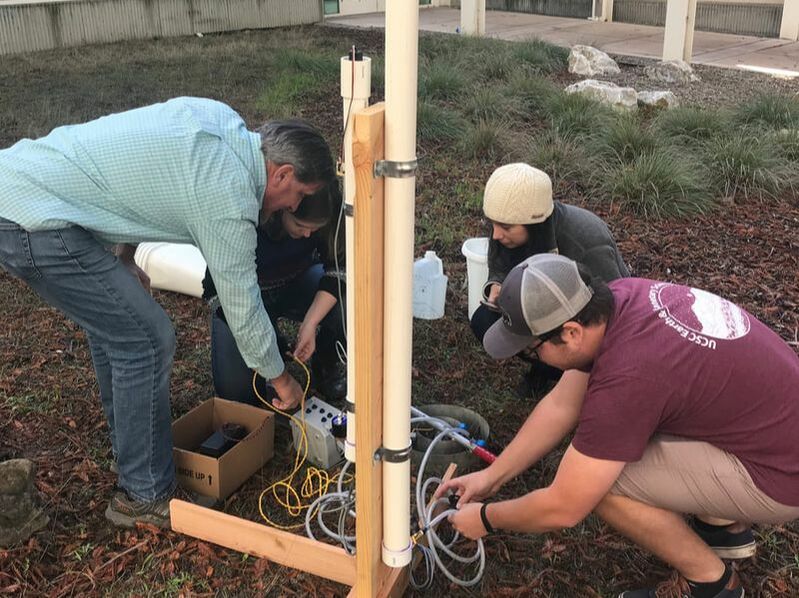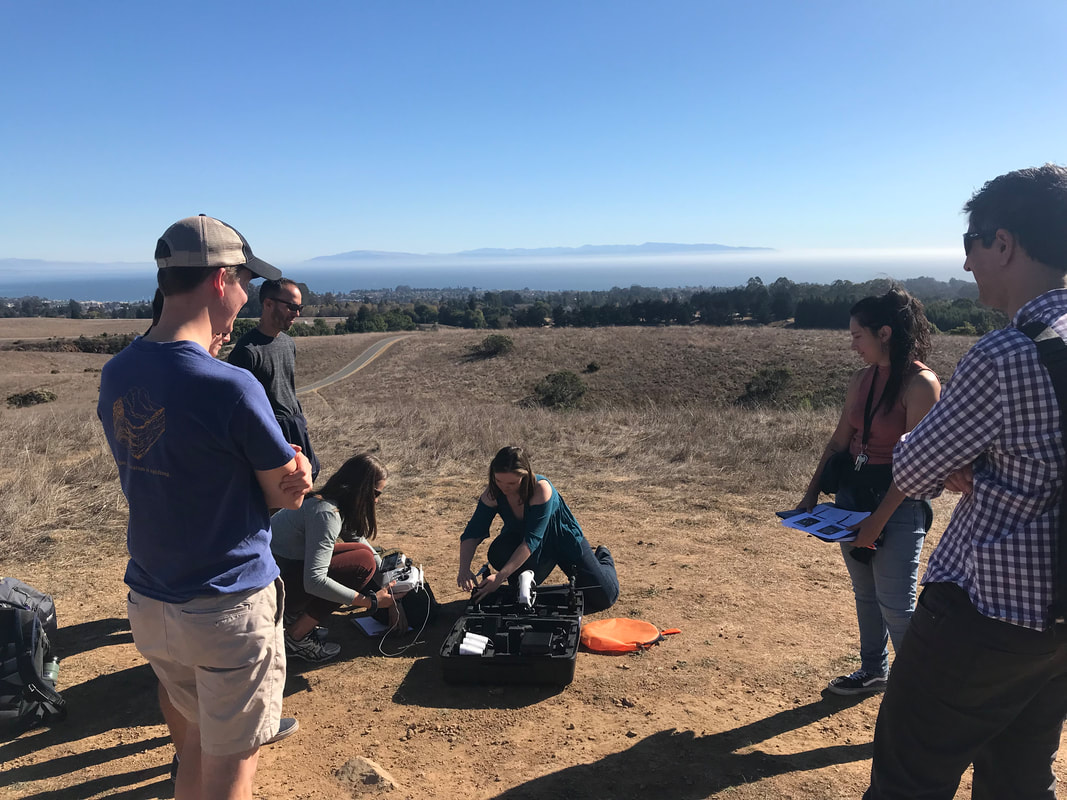EART 30 (Water in the Environment, with Cross-Cultural Analysis GE designation): This lower division undergraduate course provides an introduction to the key hydrologic processes that shape not only the natural world, but also our daily lives. This course will explore how different hydrologic processes influence the physical and ecological structure of our environments as well as the communities, cultures, and people within these environments. The course framework will be structured around the global water cycle. We will scientifically examine major components of the water cycle and explore case studies from a global array of environments to understand how different cultures and communities interact with each hydrologic component.
EART 116 (Hydrology): This upper division undergraduate course provides a computationally rigorous introduction to the field of hydrology. In this course, we will learn to delineate and define watersheds and their boundaries, understand the distribution and movement of water through hydrologic systems, and learn to measure/acquire and analyze hydrological and meteorological watershed data. We will also learn to quantify components of the hydrological cycle within a watershed, including precipitation, evapotranspiration, surface runoff, and groundwater flow and to be introduced to the processes governing fluid motion. Finally, we will learn about the application of watershed hydrology to management strategies.
EART 290 O (Topics in Hydrology): This graduate level seminar is focused on introduction to a broad range of topics within the field of watershed hydrology. The intent of this course is to instill an appreciation of the importance of hydrological processes and water resources in our society through reading some of the fundamental papers in watershed hydrology. This course will integrate discussions to broaden critical thinking skills and analysis appropriate for honing research skills in the sciences. Further, this course will focus on improving reading and writing of scientific papers.
EART 290 L (Hydroclimatology): This graduate level seminar is focused on an exploration of the climatic, meteorological and geographic processes that determine water availability for human use and vegetation growth across Earth's ecosystems. The first half of the course focuses on atmospheric processes that drive precipitation in tropical and extratropical weather systems. The second half of the course focuses on terrestrial processes, particularly evapotranspiration and runoff dynamics. The course will be a mix of lectures, paper discussions, and problem sets. A central theme will be the hydroclimate effects of past and future climate changes.
EART 116 (Hydrology): This upper division undergraduate course provides a computationally rigorous introduction to the field of hydrology. In this course, we will learn to delineate and define watersheds and their boundaries, understand the distribution and movement of water through hydrologic systems, and learn to measure/acquire and analyze hydrological and meteorological watershed data. We will also learn to quantify components of the hydrological cycle within a watershed, including precipitation, evapotranspiration, surface runoff, and groundwater flow and to be introduced to the processes governing fluid motion. Finally, we will learn about the application of watershed hydrology to management strategies.
EART 290 O (Topics in Hydrology): This graduate level seminar is focused on introduction to a broad range of topics within the field of watershed hydrology. The intent of this course is to instill an appreciation of the importance of hydrological processes and water resources in our society through reading some of the fundamental papers in watershed hydrology. This course will integrate discussions to broaden critical thinking skills and analysis appropriate for honing research skills in the sciences. Further, this course will focus on improving reading and writing of scientific papers.
EART 290 L (Hydroclimatology): This graduate level seminar is focused on an exploration of the climatic, meteorological and geographic processes that determine water availability for human use and vegetation growth across Earth's ecosystems. The first half of the course focuses on atmospheric processes that drive precipitation in tropical and extratropical weather systems. The second half of the course focuses on terrestrial processes, particularly evapotranspiration and runoff dynamics. The course will be a mix of lectures, paper discussions, and problem sets. A central theme will be the hydroclimate effects of past and future climate changes.



